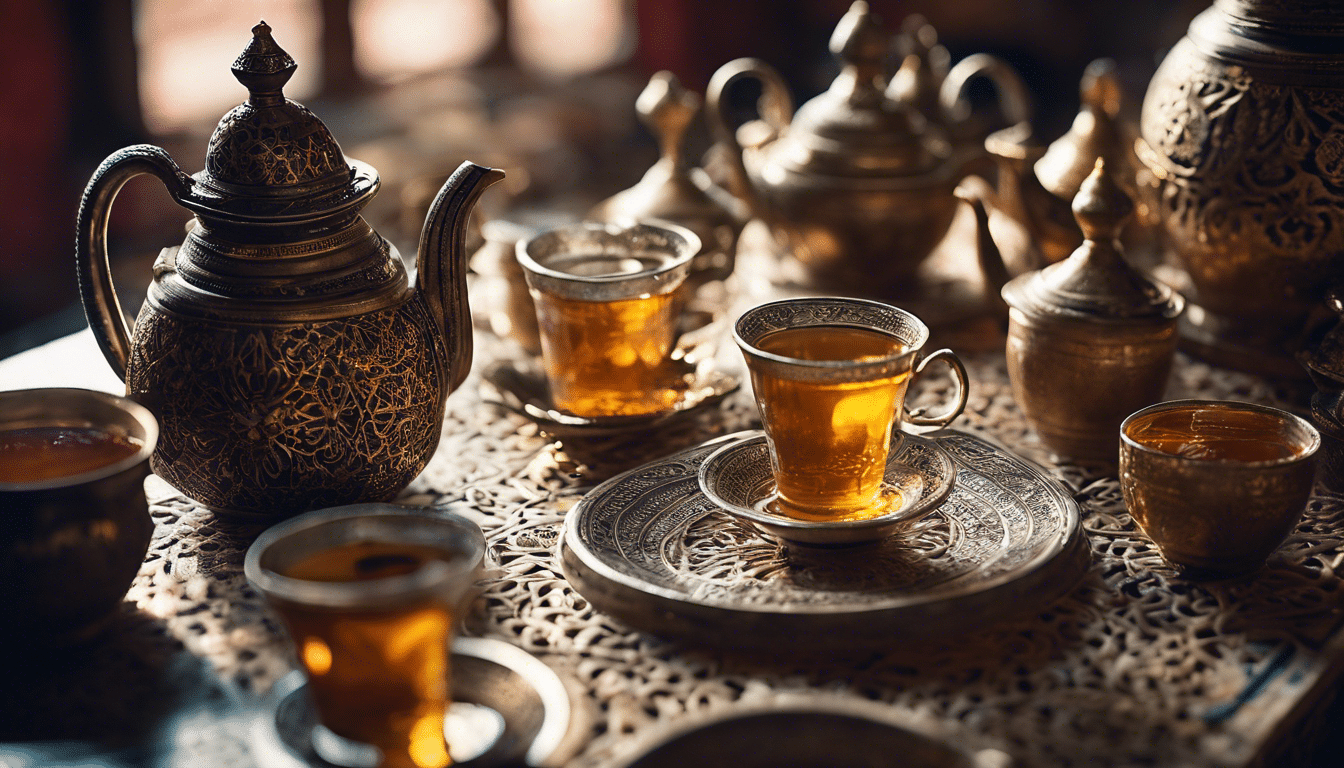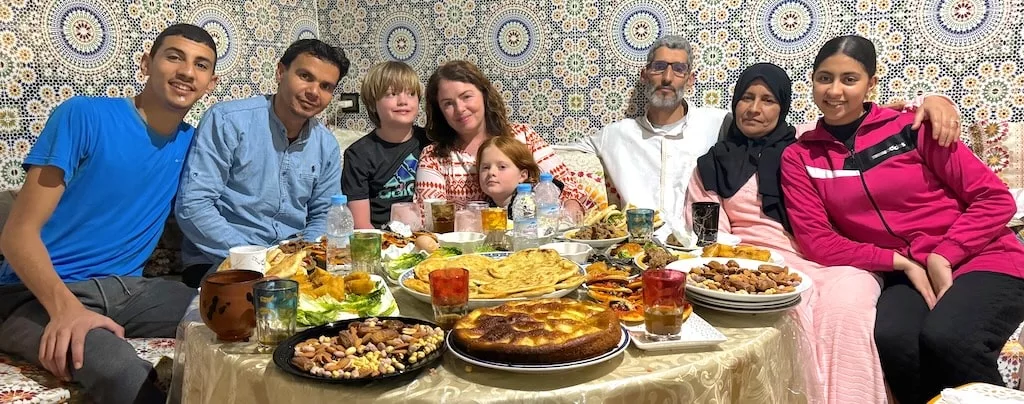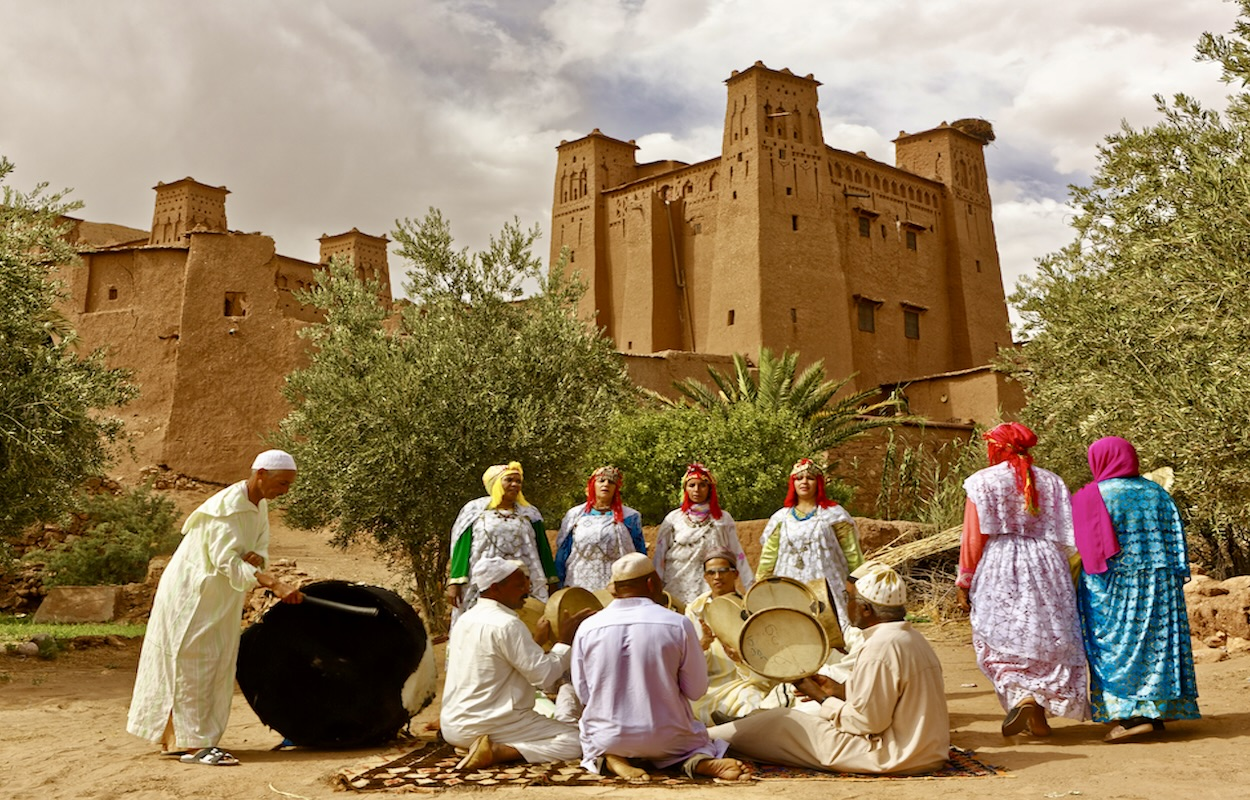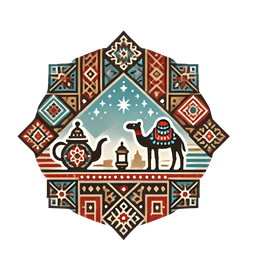- Published on
Moroccan People and Culture Understanding Local Customs and Traditions
- Authors

- Name
- Adil ABBADI
Introduction
Morocco, a country located in the northwestern corner of Africa, is a melting pot of diverse cultures, traditions, and customs. From the bustling souks of Marrakech to the tranquil Atlas Mountains, Morocco is a country that is steeped in history, tradition, and warm hospitality. As a visitor, understanding the local customs and traditions is essential to making the most of your Moroccan experience. In this blog, we'll delve into the rich cultural heritage of Morocco, exploring the intricacies of Moroccan people and their customs that make them so warm and welcoming.
- Greetings and Hospitality
- Respect for Elders
- Importance of Family
- Food and Cuisine
- Festivals and Celebrations
- Etiquette and Manners
- Conclusion
- Embrace Moroccan Culture
Greetings and Hospitality
In Morocco, greetings and hospitality are an integral part of the culture. When meeting someone for the first time, it's customary to greet them with a warm "As-salamu alaykum" (peace be upon you), to which the response is "Wa alaykum as-salam" (and peace be upon you). This greeting is a sign of respect and is often accompanied by a handshake or a kiss on the cheek.
Moroccans are known for their warm hospitality, and visitors are often treated to a cup of sweet mint tea, which is an integral part of Moroccan culture. The traditional Moroccan tea ceremony is a symbol of friendship and respect, and it's considered impolite to refuse a cup of tea when offered.

Respect for Elders
In Moroccan culture, respect for elders is deeply ingrained. Children are taught from a young age to show respect to their elders, and this is reflected in the way they greet and address older people. When meeting an elder, it's customary to use formal titles such as "Hajj" or "Lalla" followed by their first name.
This respect for elders is also reflected in the way Moroccans celebrate special occasions such as weddings and festivals. Elders play a significant role in these celebrations, and their blessings and advice are highly valued.
Importance of Family
Family is at the heart of Moroccan culture, and family ties are extremely strong. Moroccans place great importance on family and community, and social gatherings are an integral part of Moroccan life.
The traditional Moroccan family is large and close-knit, with several generations often living together in the same household. Children are taught from a young age to respect their parents and elders, and family members often come together to celebrate special occasions such as weddings and Eid celebrations.

Food and Cuisine
Moroccan cuisine is a delicious blend of African, Arab, and Mediterranean flavors. Traditional dishes such as tagine, couscous, and harira are staples of Moroccan cuisine, and meals are often served with a variety of spices and condiments.
Mealtimes are an important part of Moroccan culture, and food is often served in a communal setting. The traditional Moroccan table setting, known as a "khwan," is a low-lying table surrounded by cushions, and meals are eaten with the hands.

Festivals and Celebrations
Morocco is known for its vibrant festivals and celebrations, which are an integral part of Moroccan culture. The Islamic calendar plays a significant role in Moroccan festivals, with Ramadan and Eid al-Fitr being two of the most important celebrations.
Other festivals and celebrations include the Marrakech Popular Arts Festival, the Fez Festival of World Sacred Music, and the Eid al-Adha, which commemorates the willingness of the Prophet Ibrahim to sacrifice his son.

Etiquette and Manners
Moroccans place great importance on etiquette and manners, and visitors are expected to show respect for local customs and traditions. Here are a few tips to keep in mind:
- Dress modestly, covering your shoulders and knees as a sign of respect.
- Remove your shoes when entering a Moroccan home or mosque.
- Use your right hand when eating or giving and receiving objects.
- Avoid public displays of affection, as they are considered impolite.
- Haggle politely when shopping in the souks.
Conclusion
Morocco is a country that is rich in culture, tradition, and warm hospitality. Understanding local customs and traditions is essential to making the most of your Moroccan experience. From the warm greetings and hospitality to the importance of family and respect for elders, Moroccan culture is a vibrant tapestry of traditions and customs. By embracing these customs and traditions, visitors can experience the true essence of Moroccan culture and forge lasting connections with the Moroccan people.
Embrace Moroccan Culture
As you explore the wonders of Morocco, remember to respect and embrace the local customs and traditions. From the bustling souks to the tranquil riads, Morocco is a country that will leave you enchanted and inspired. So come and experience the beauty of Moroccan culture for yourself – you won't be disappointed!
